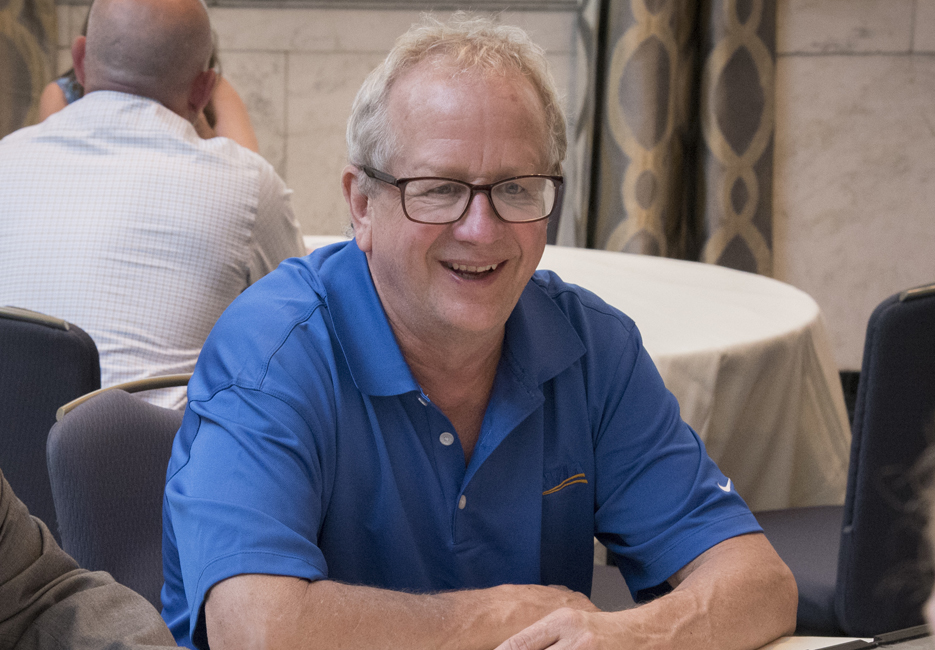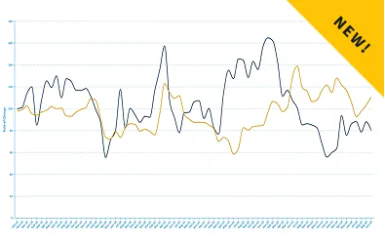Meet RV Industry Association Inspector John Proteau
With over 30 years of experience under his tool belt, RV Industry Association Director of Inspection Services John Proteau shares what it’s like to be an RV inspector, his journey into the field and his hopes for the future of the program. Here’s his story:
Q. What inspired you to get into this field, what’s the story there?
A. I had a degree in biochemistry from the University of Purdue but found no jobs available in that field without a master’s degree. At the time, I was living in South Bend and learned of an inspector position through a good friend of mine, who was an inspector, and had recently been promoted. After landing the job I found it was a great fit for me. Here I am 35 years later!
Q. What classes or programs did you go through to become an inspector?
A. Back when I became an inspector, the training program was to accompany Webb Anderson, who was the top inspector at the time, on about three weeks of inspections, then start inspecting and learn as you go. I really learned a lot from Webb in that short time, he was a fantastic inspector. I remember reviewing the code book the night before my first inspection and realizing that if I knew there was a code on something, and I could locate it in the code book, I would be just fine. Nowadays, the inspectors have iPads and can locate specific codes during the inspection using a search function for keywords. The training program for new inspectors is much more regimented and extensive now and includes classroom and in-plant instruction as well as performing actual inspections. On boarding sessions are also performed with all other RV Industry Association departments.
Q. What’s something about this line of work that often gets overlooked?
A. A lot of people do not know that we are involved in the code making process for the standards we enforce during our inspection visits. We are constantly involved in making sure there are safety standards to cover any new technologies that are being used. As an example, we are currently working on a code involving lithium batteries and solar technology.

Q. What do you enjoy most about your profession?
A. When I started as an inspector 35 years ago, I had no idea I would make a career in codes and standards. I enjoyed the travel, and really liked being the expert on the subject of RV codes. I also liked that my work was focused on safety, helping our members build a safe RV for the consumer. Working in a safety focused field is satisfying, since it’s good to feel like your work is making a difference in people’s lives. As the years progressed, and I became the chief inspector, I really liked being able to help ensure that the RV Industry Association’s Inspection Program was the best in the business. During my tenure, I have personally trained all the new inspectors, and it is great to see them develop. I really like when they reach the point where they realize they are now an “expert” in the field and can confidently answer most questions thrown at them.
Q. When you are scouting an inspector, what are you looking for?
A. The rare combination of technical ability and people skills and the ability to travel extensively. This is sometimes a hard fusion to find.
Q. Where do you see the inspection program going in the next 3-5 years?
A. The RV Industry Association Inspection Program is one of the finest examples of self-regulation in any industry. The inspection program is a tremendous value to our members, and there is no reason this will not continue to reach new heights – the sky is the limit. Members understand that the inspection program helps them build a better, safer RV. Reducing their liability in the long run. It also assists them in developing a culture of compliance that increases product quality. A succession plan for the standards department has been initiated, and in the future more emphasis will likely be placed on standards education, in addition to federal standards.
Q. Any words of wisdom for anyone aspiring to become an inspector?
A. Don’t apply for the job if you are not comfortable driving long distances and tallying up an extensive travel log.
For more information about the RV Industry Associations standards program, click here.
Please Sign in to View
Log in to view member-only content.
If you believe you are receiving this message in error contact us at memberservices@rvia.org.

